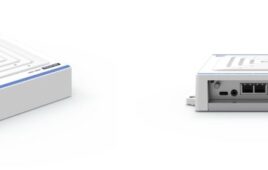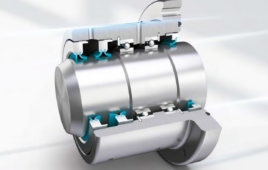Medical imaging systems provide detailed pictures on the structure of a body in multiple topographies. Detailed contrasts are visible between the different soft tissues and are useful in neurological, cardiovascular and oncological analysis. CT and PET scanners use ion radiation created by X-rays to capture topographical images, while MRI equipment use magnetic and radio frequency fields. Temperature stability is vital in medical imaging equipment, as operating temperature fluctuations in these machines can significantly affect the image quality and resolution.

Liquid Cooling Systems (LCS) can deliver the needed temperature stability. When compared to compressor-based systems, standard and custom liquid cooling systems offer high heat pumping and high heat flux density with quiet operation, often in a smaller and lighter system.
In CT, PET and other X-ray based imaging techniques, X-ray tubes in gantry systems generate a large amount of heat. The heat load range can be as much as 5 KW. As a result, liquid cooling systems are often the preferred choice to move the heat away from X-ray tubes to ensure quality images are produced.
MRI machines generate a large magnetic field using a super conducting magnet and many coils of wires through which a current is passed. Maintaining a large magnetic field needs a lot of energy, generating significant amounts of heat. Liquid cooling systems combine high heat pumping capacity and heat routing with minimum power consumption.
In addition, components in these gantry systems are subject to tremendous rotational speeds and acceleration forces (G-forces). This particular LCS system uses spindle screw pump technology so that pressure changes have little impact on the LCS performance, as the pump easily moves fluids of higher viscosity without losing flow rate. The LCS with spindle screw pumps maintain constant flow and pressure while under high G-force stress, ensuring proper performance under these demanding medical imaging conditions.
This LCS offers high thermal conductivity of coolants to remove bulk heat in Kilowatts with rapid cool down. Liquid cooling systems recirculate coolant to a predefined set-point temperature, while dissipating the large amount of heat generated in the densely packed electronic environment. An LCS offers higher efficiency than air-based heat exchangers and provides more rapid cooling, quieter operation, higher reliability, and increased system uptime.
Laird
www.lairdtech.com
Filed Under: Medical-device manufacture





Tell Us What You Think!